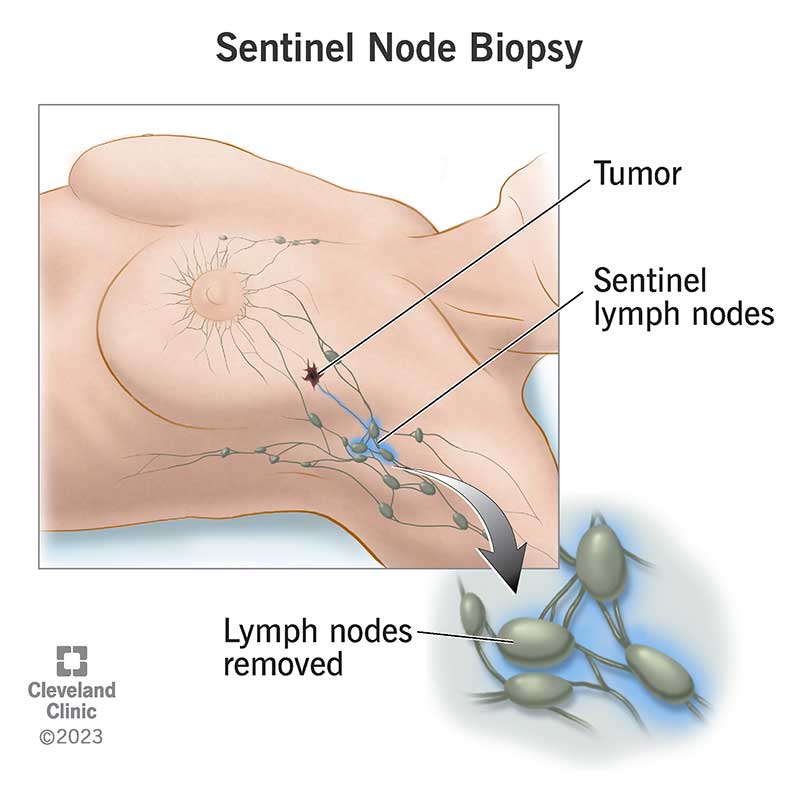
A sentinel node biopsy is a surgical procedure used to determine if breast cancer has spread to the lymph nodes. The sentinel nodes are the first lymph nodes to which cancer cells are likely to spread from a primary tumor. By examining these nodes, specialists can accurately stage the cancer, which is essential for planning the most effective treatment strategy.
Performed under general anesthesia, the sentinel node biopsy involves:
Recovery from a sentinel node biopsy is typically quicker than traditional lymph node removal surgery. Most patients can resume normal activities within a few days. It’s important to follow your surgeon’s aftercare instructions, which may include caring for the incision site and managing any discomfort.
While sentinel node biopsy is generally safe, as with any surgical procedure, there are potential risks, including:
If you or a loved one is facing a breast cancer diagnosis, understanding all your diagnostic and treatment options, including sentinel node biopsy, is crucial. Contact us today to schedule a consultation with our specialists. We’re here to provide the care, support, and expertise you need for a successful treatment journey.
It helps determine if cancer has spread beyond the breast, which is crucial for staging and treatment planning. This procedure allows us to avoid removing more lymph nodes than necessary, reducing the risk of complications.
Risks are generally low but may include allergic reaction to the dye, lymphedema (though less likely than with full axillary dissection), and standard surgical risks. Dr. Sheikh will discuss these with you in detail.
Sentinel Node Biopsy is highly accurate, with detection rates of over 95% when performed by experienced surgeons like Dr. Hammad Raza Sheikh.
Most patients can return to normal activities within a few days to a week. Dr. Sheikh will provide specific post-operative instructions.
If cancer is detected, further treatment may be necessary. This could include additional surgery, radiation therapy, or systemic treatments. Dr. Sheikh will discuss all options with you.
